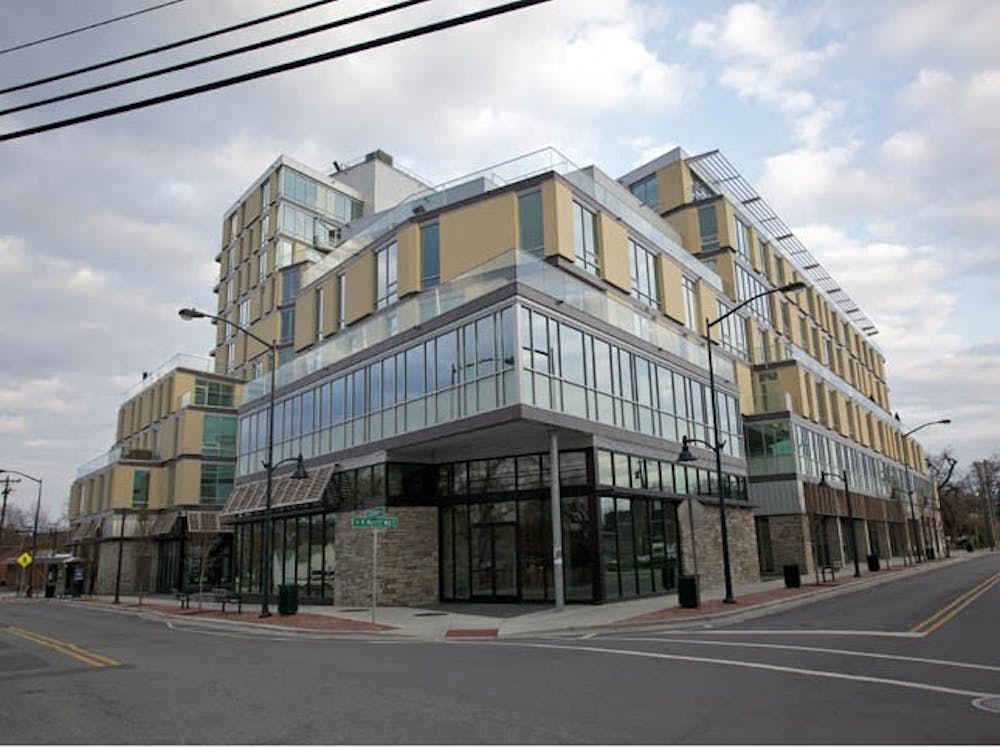Greenbridge, the 10-story Rosemary Street development that opened last fall, faces the threat of foreclosure by its bank.
The (Raleigh) News & Observer reported Friday that the Greenbridge development could foreclose after Bank of America refused to pay $1.6 million in invoices on the project in October.
The bank claims the contractor, Weaver Cooke Construction of Greensboro, exceeded its guaranteed maximum price on the $54 million project, the N&O reported.
But Dan Estes, president of Weaver Cooke, said he made a separate agreement with Greenbridge developer Tim Toben to repay the $1.6 million, and the money should not be a factor in Bank of America’s decision to stop payment.
“My take is the developer worked out a way to alleviate that problem with going over guaranteed maximum price outside of his debt to Bank of America, so that shouldn’t even be on the table,” he said.
Greenbridge was touted as one of the most sustainable complexes in the state as it elicited bomb threats and graffiti from those who protested its location.
Toben and Greenbridge partner Frank Phoenix would not comment on the development or its finances.
In November, Estes filed a lien, or a legal claim for payment of debt, against Greenbridge, which still owes the construction company “several million” along with the bank, he said.
“Nobody can sell any condo units until we’re paid, until the lien is satisfied,” Estes said.



